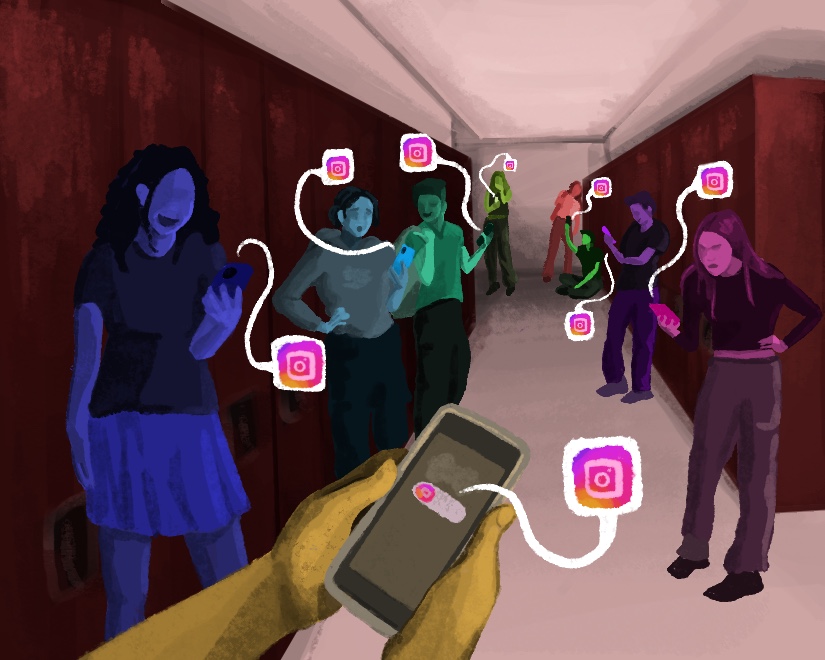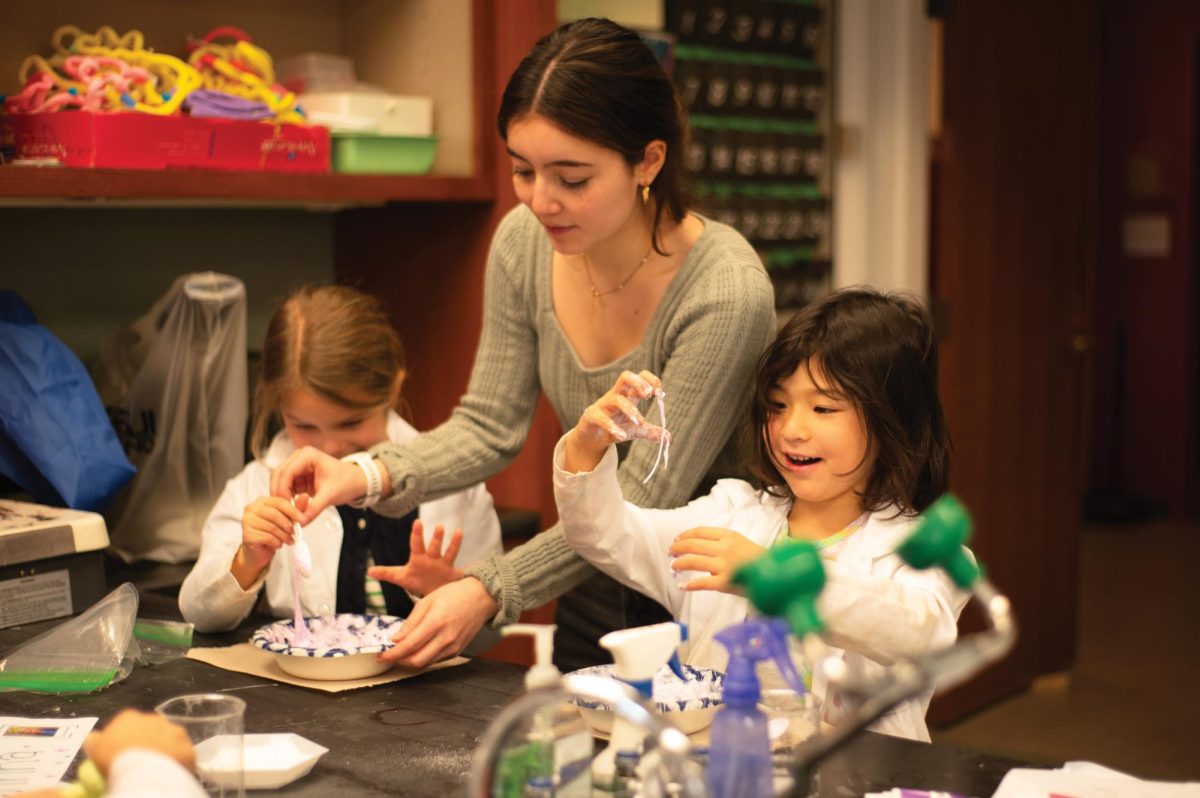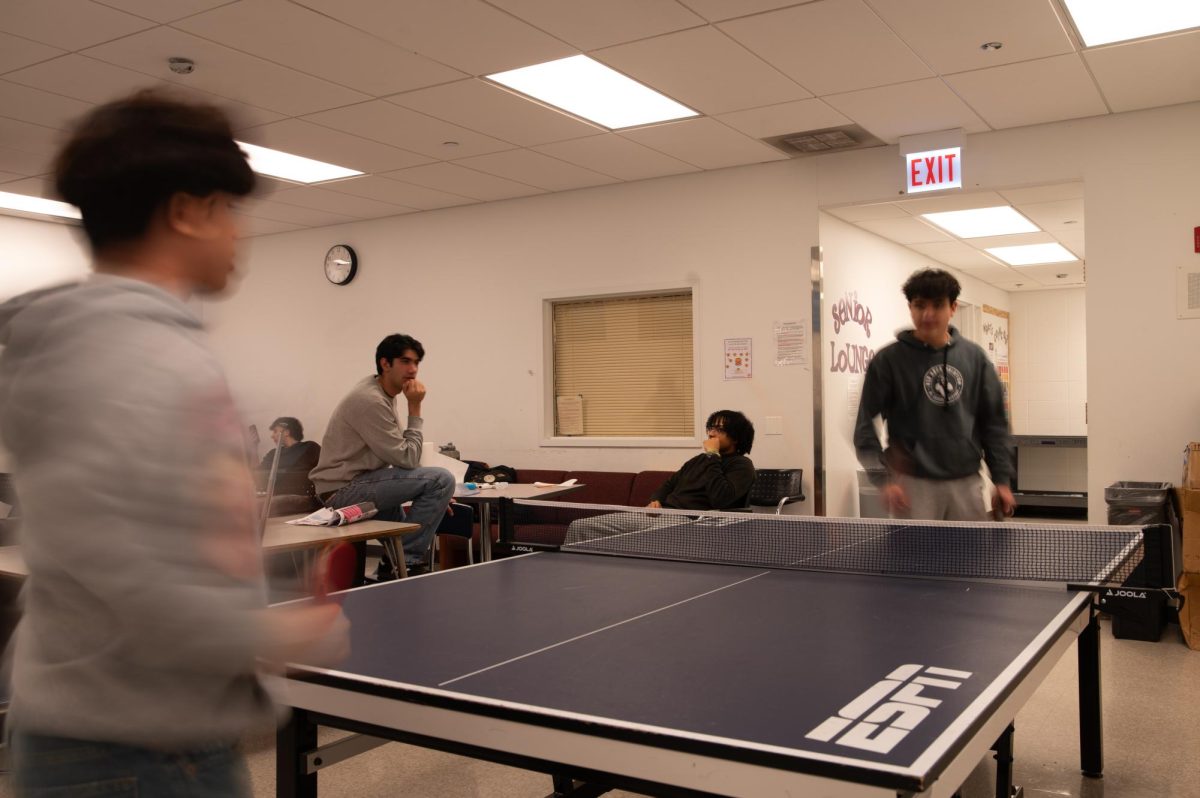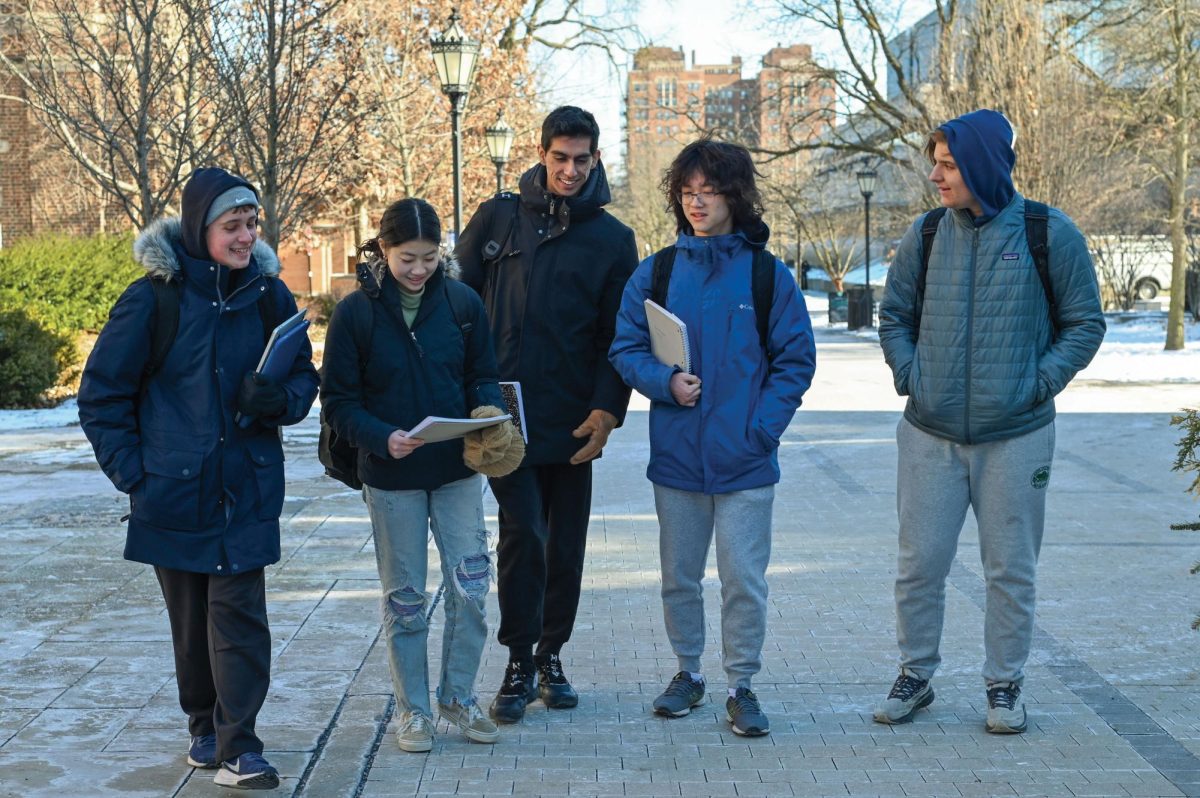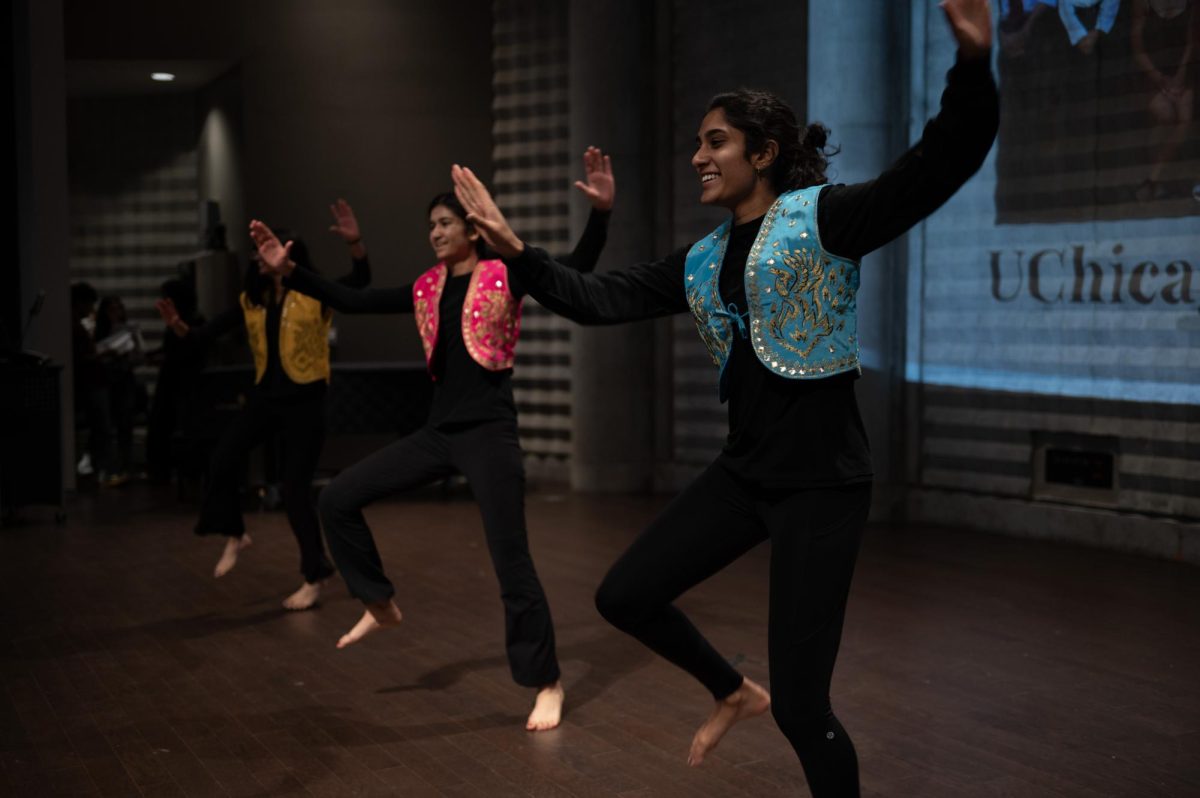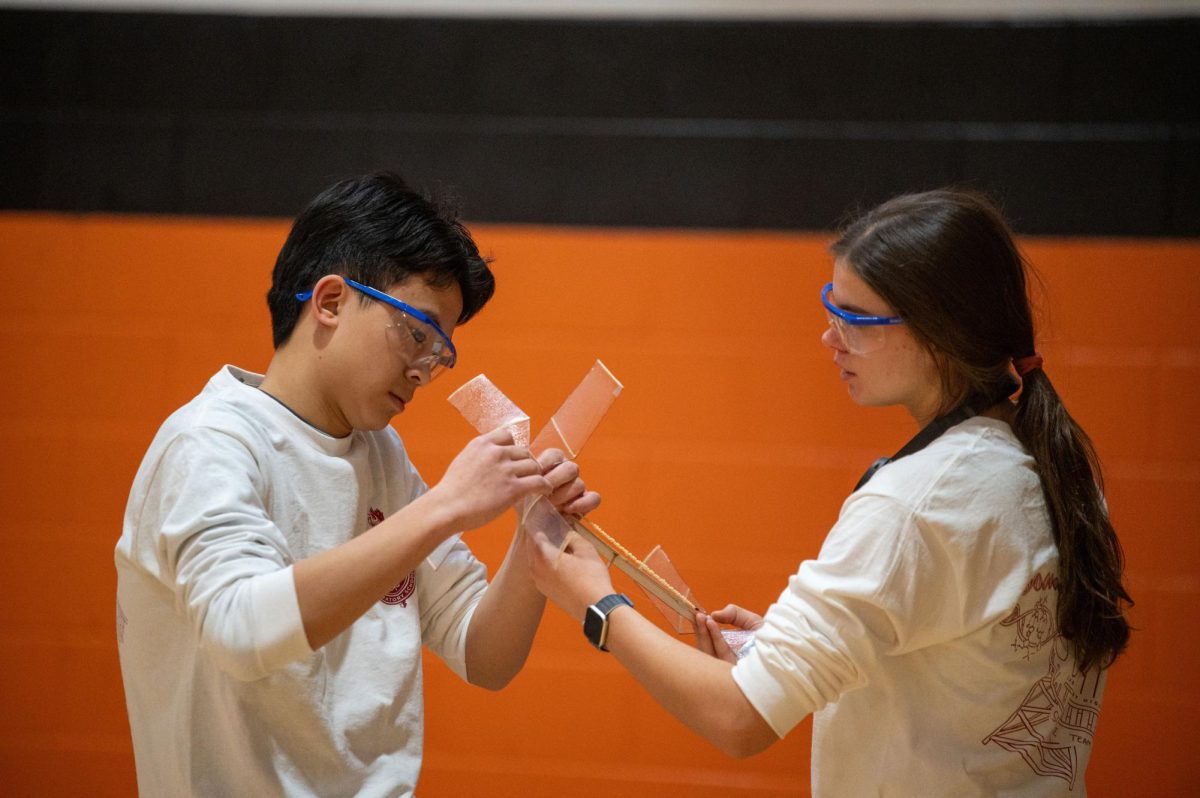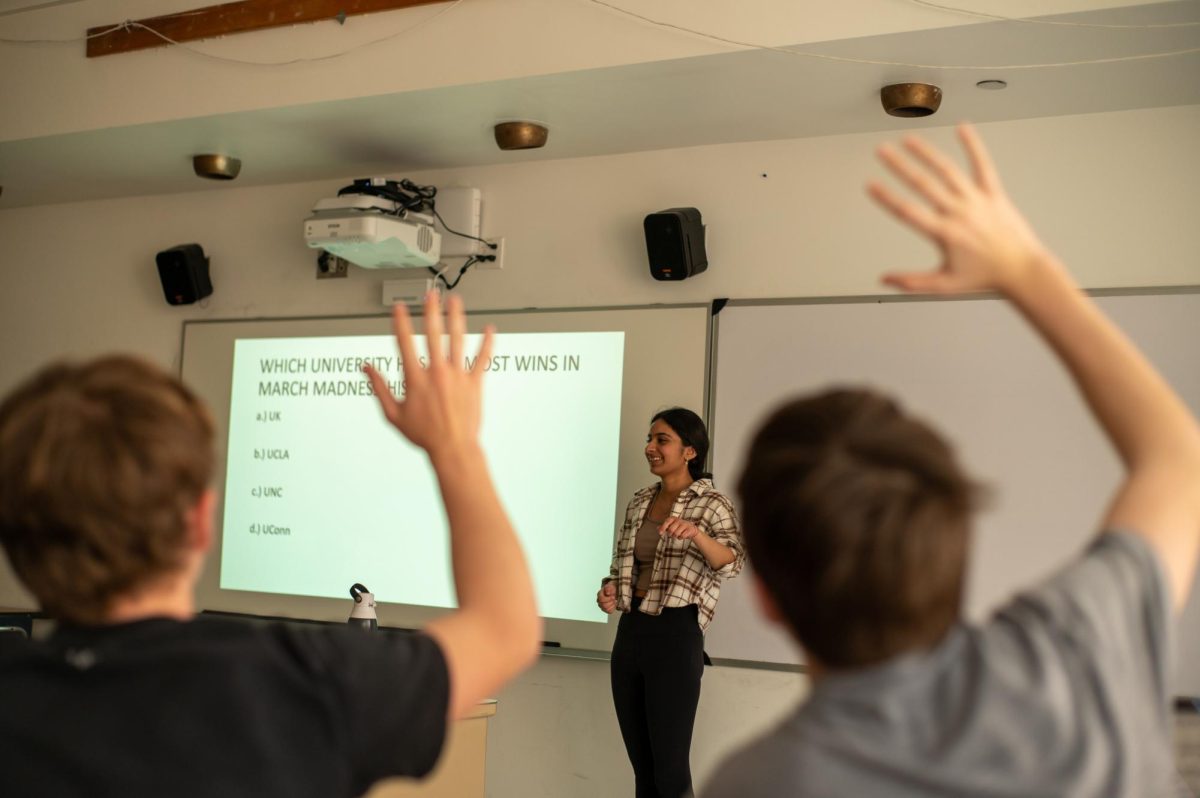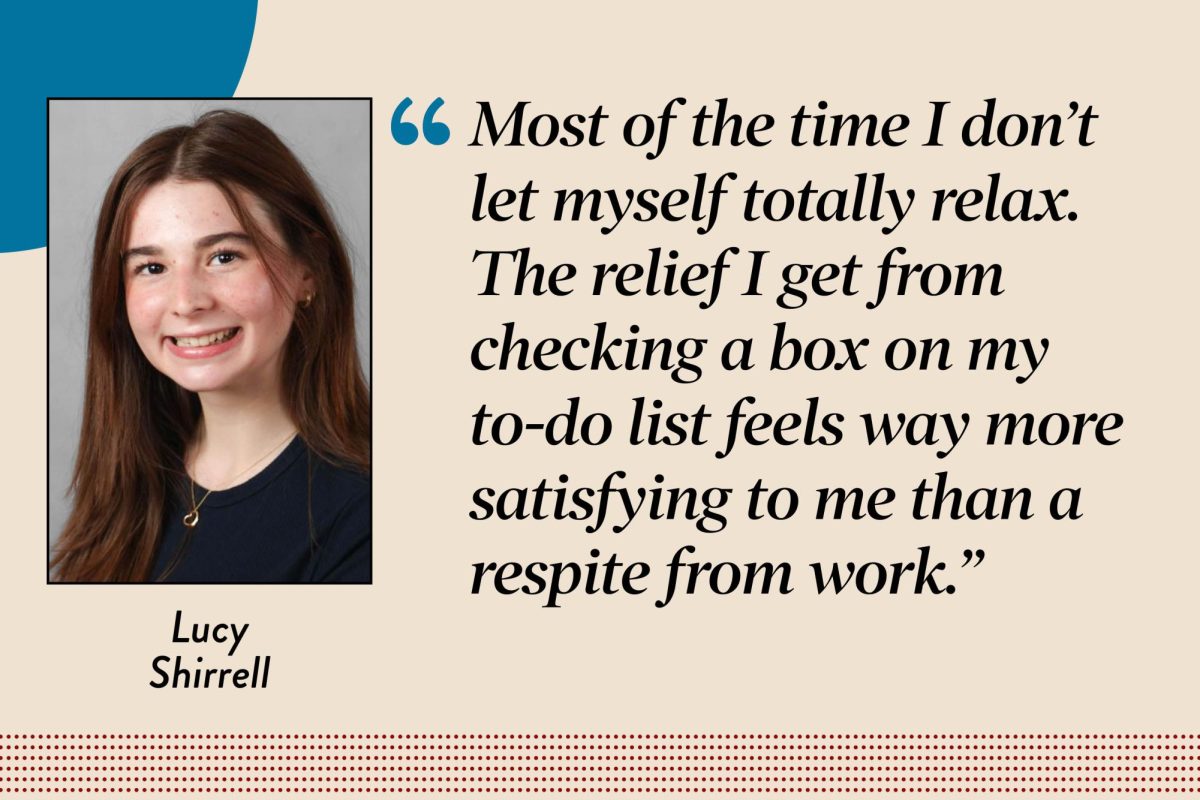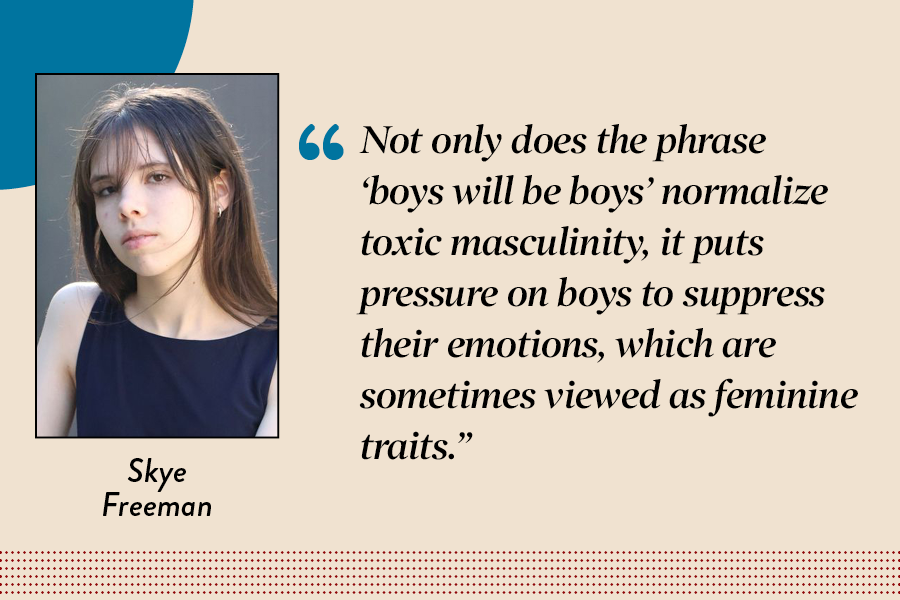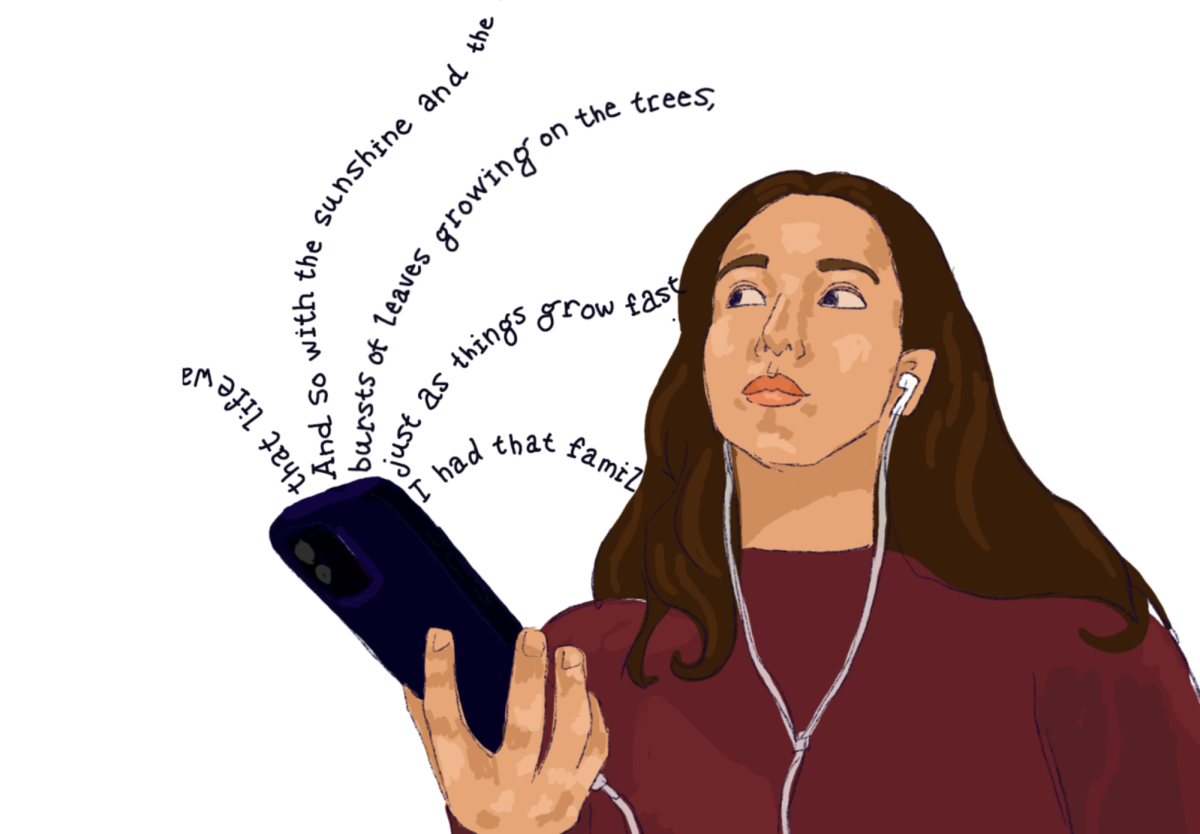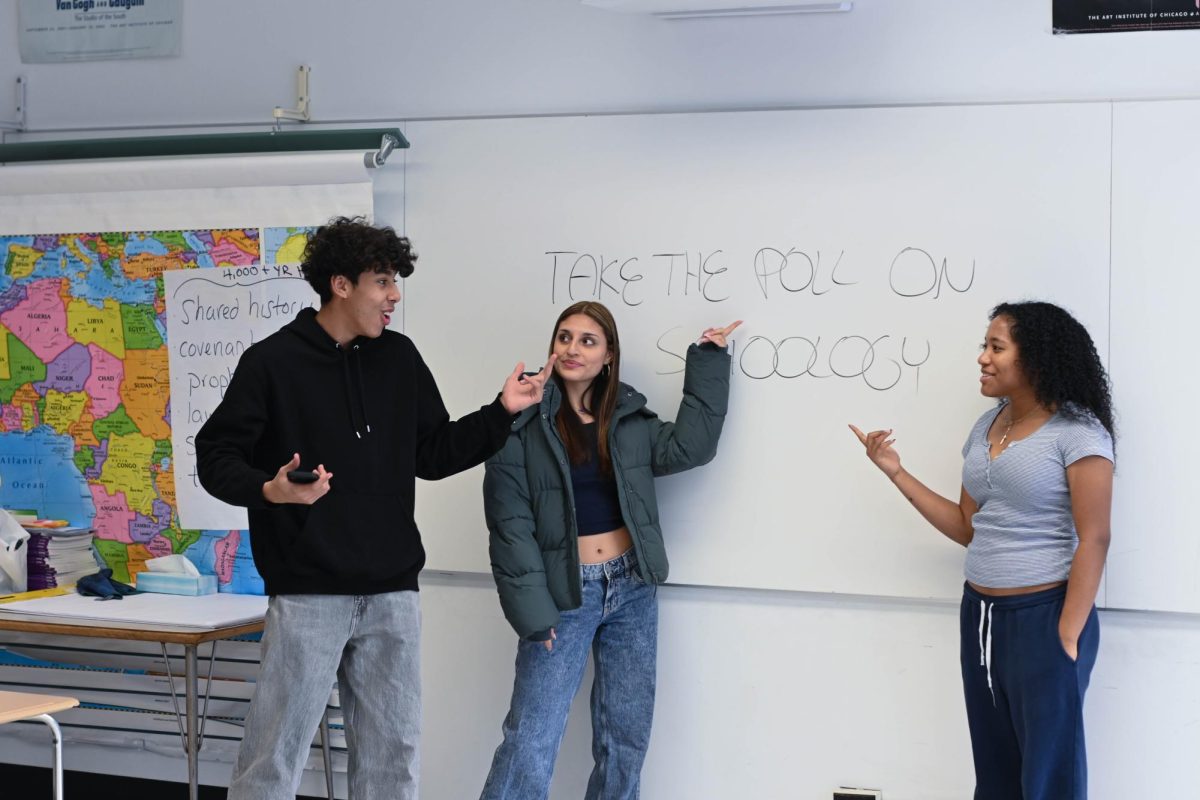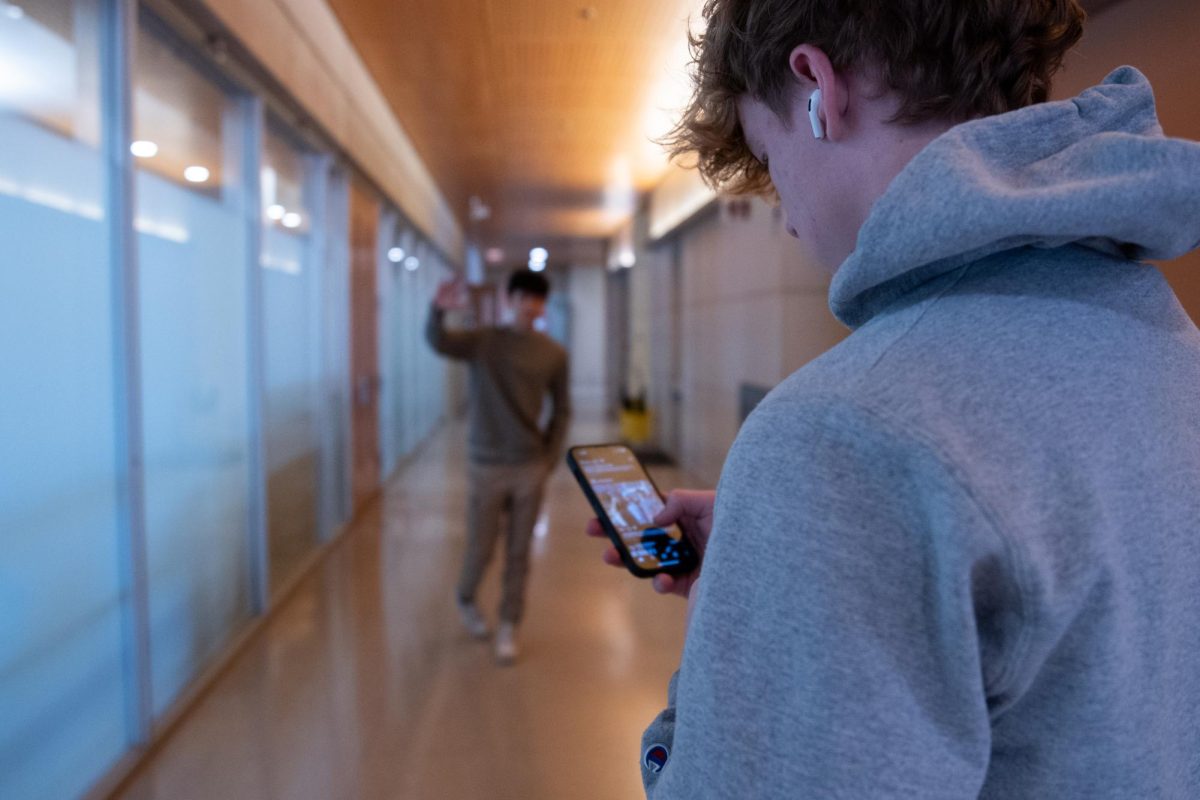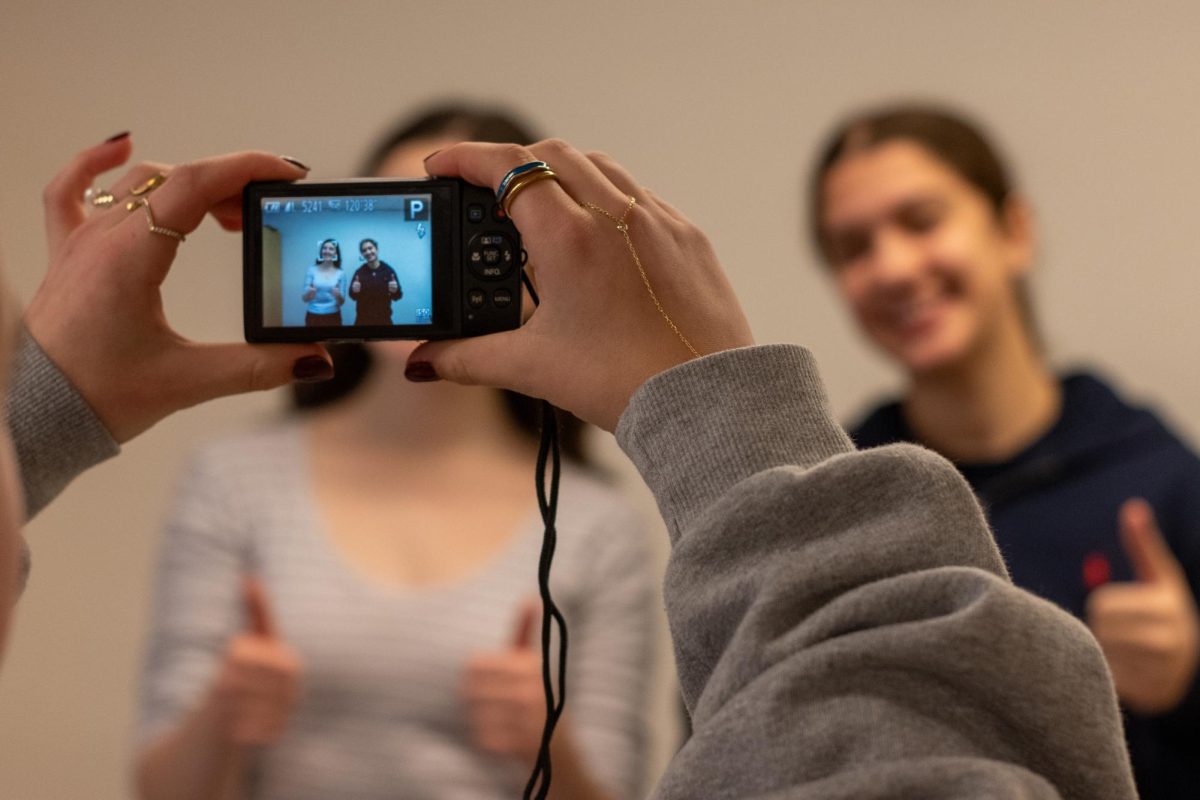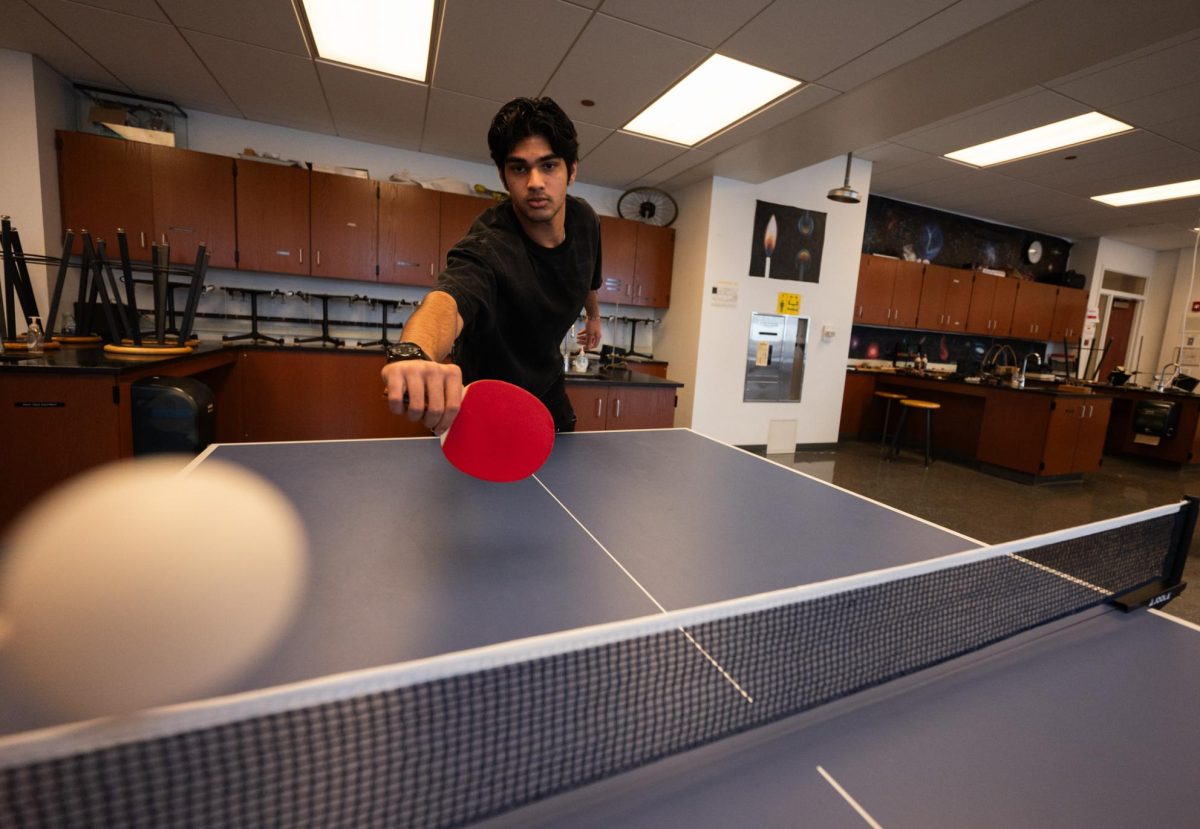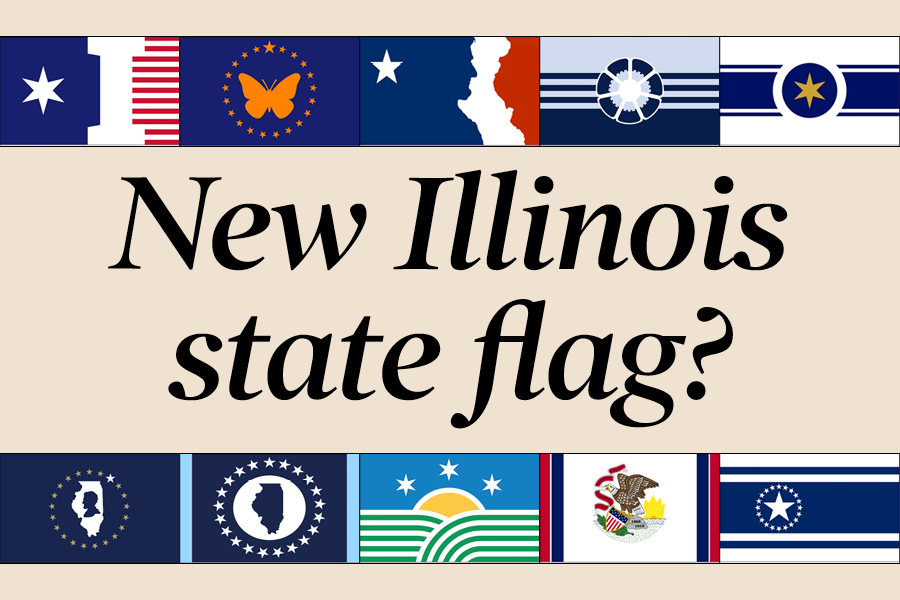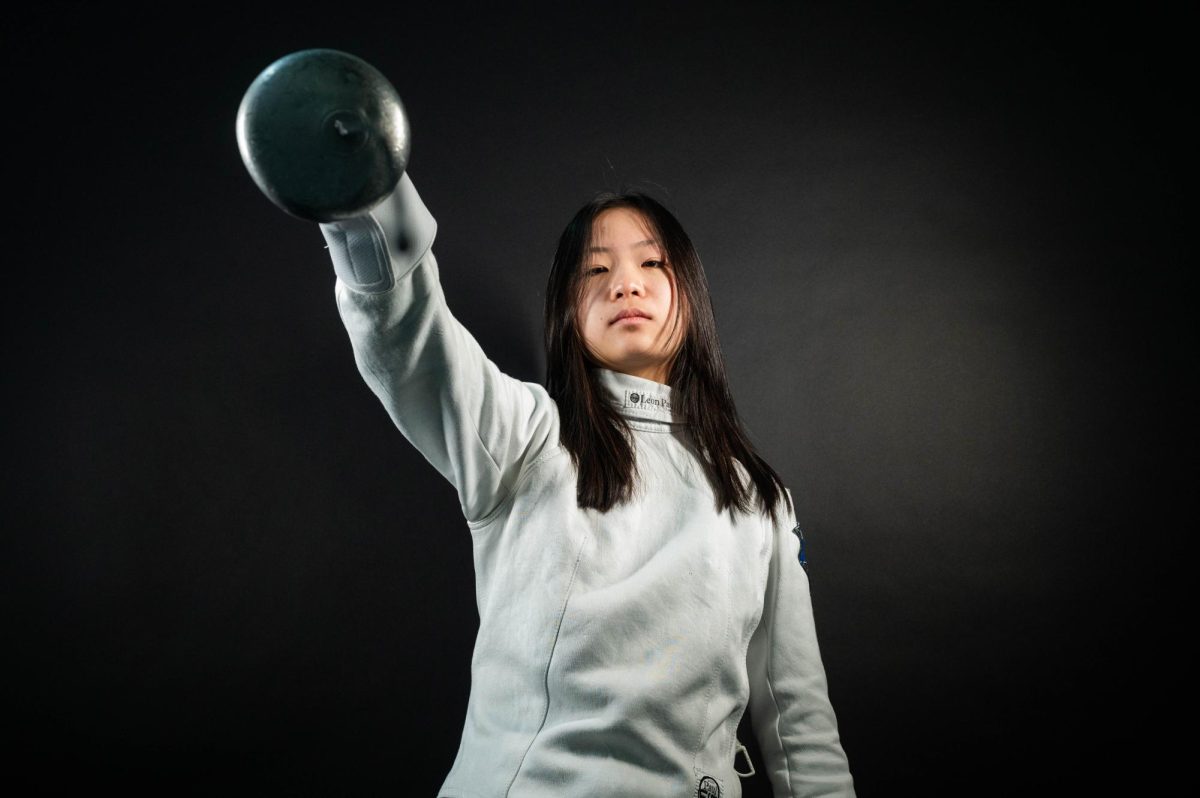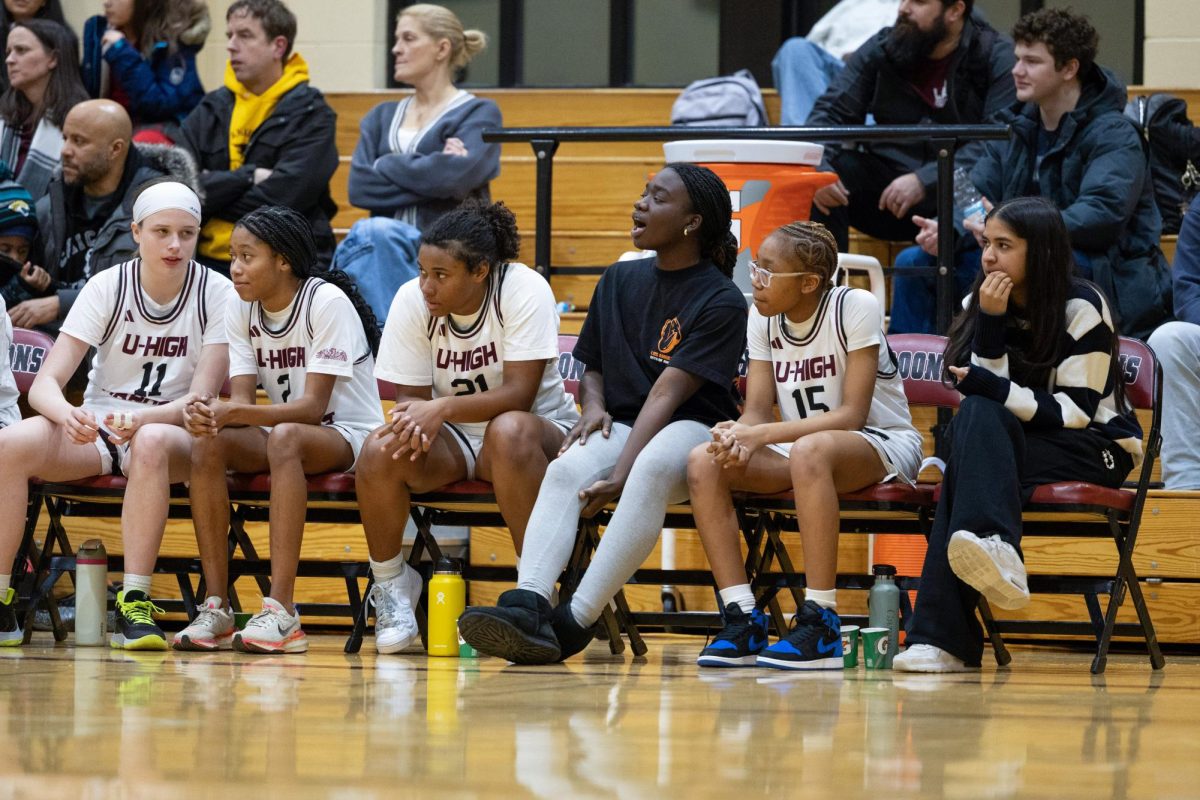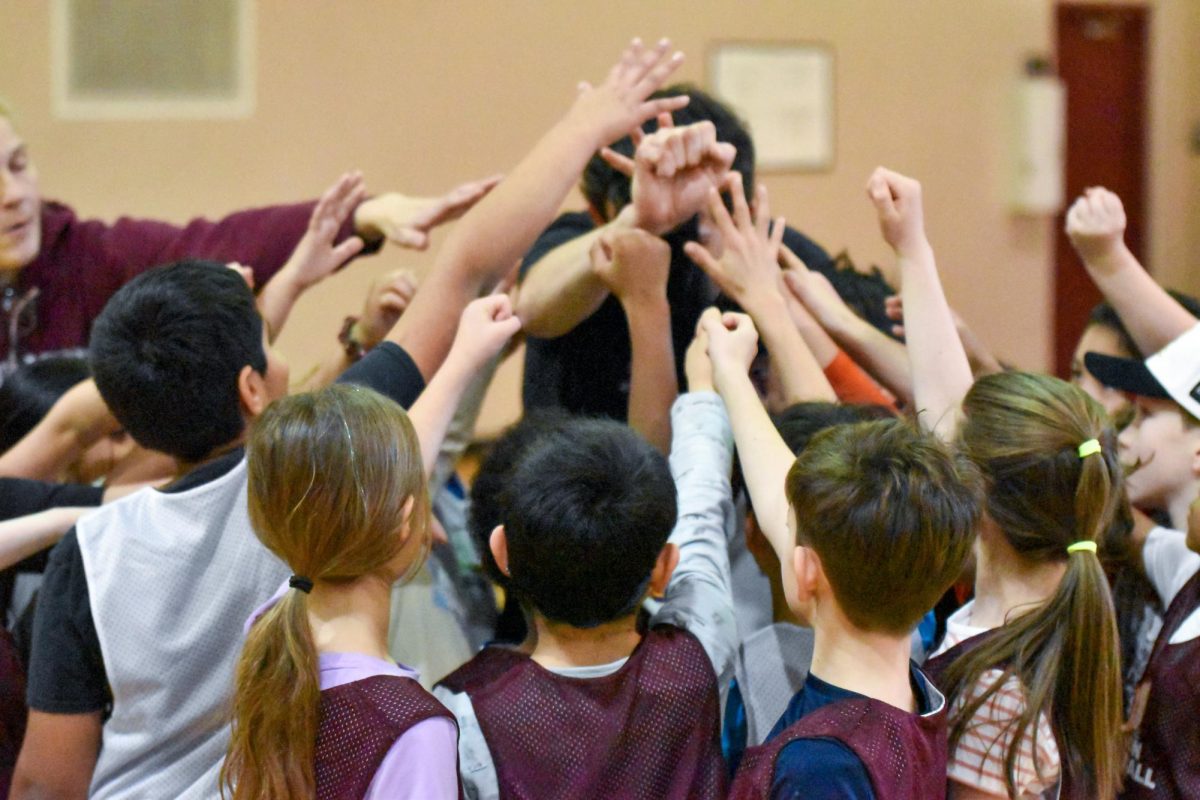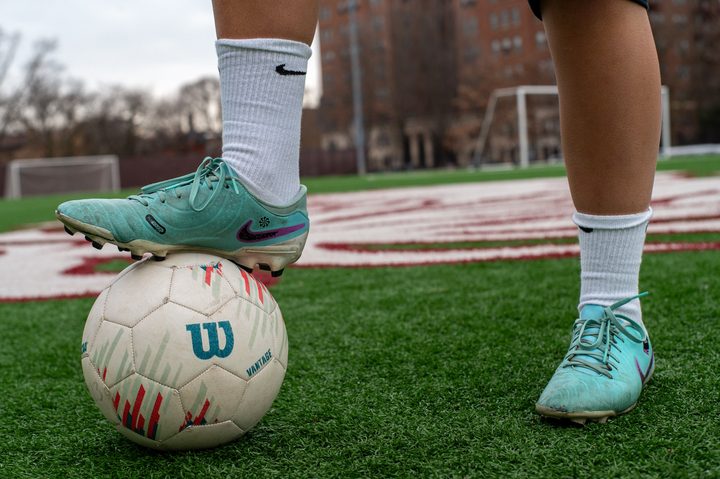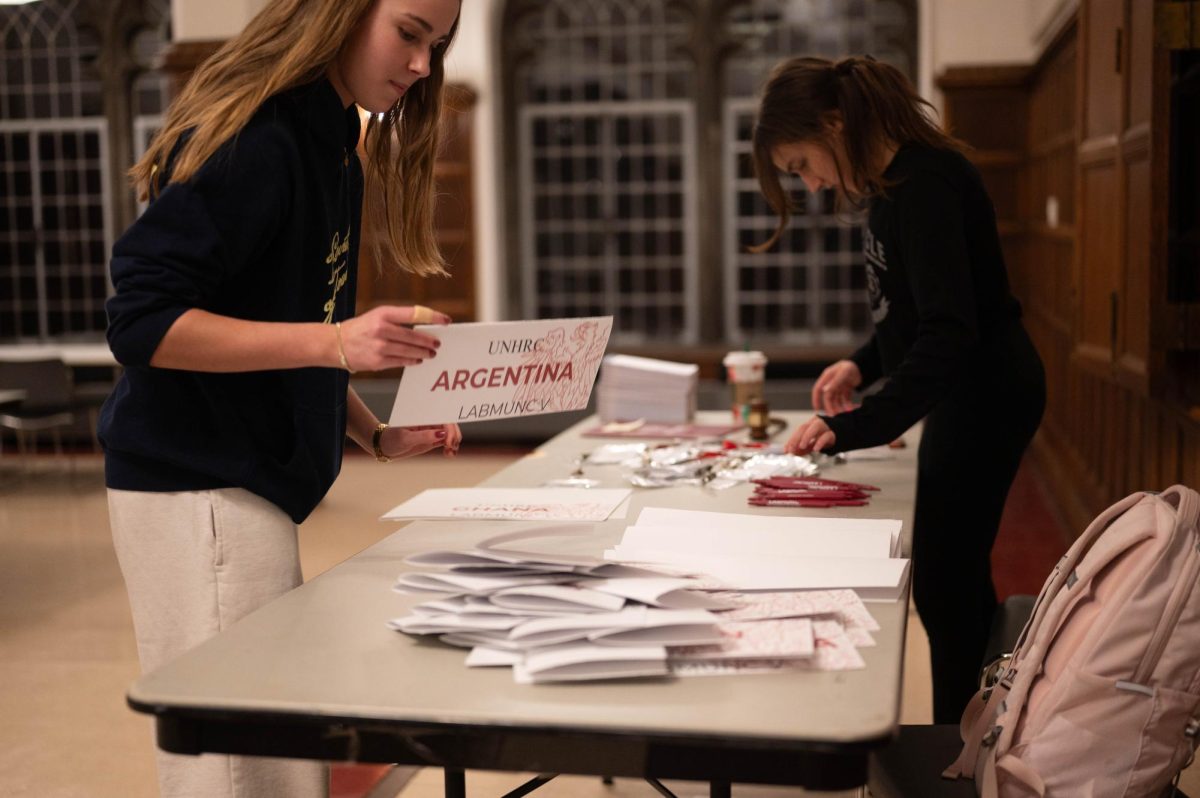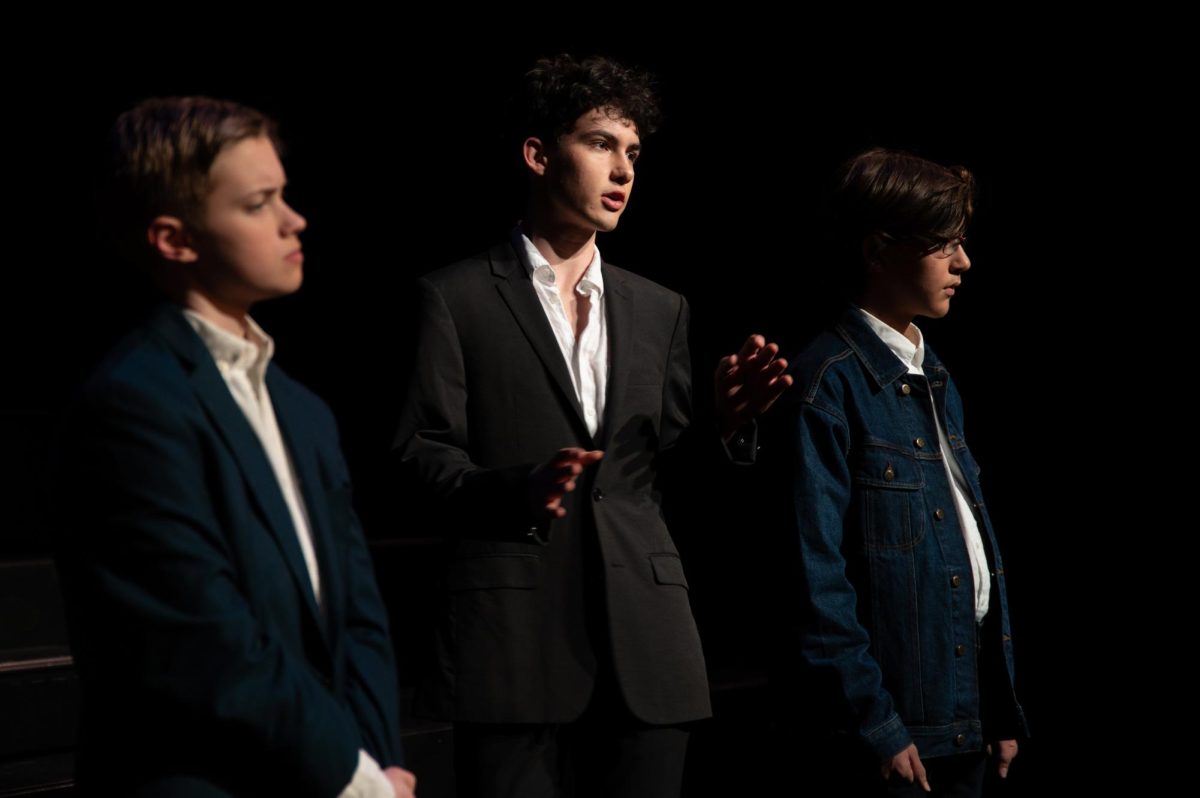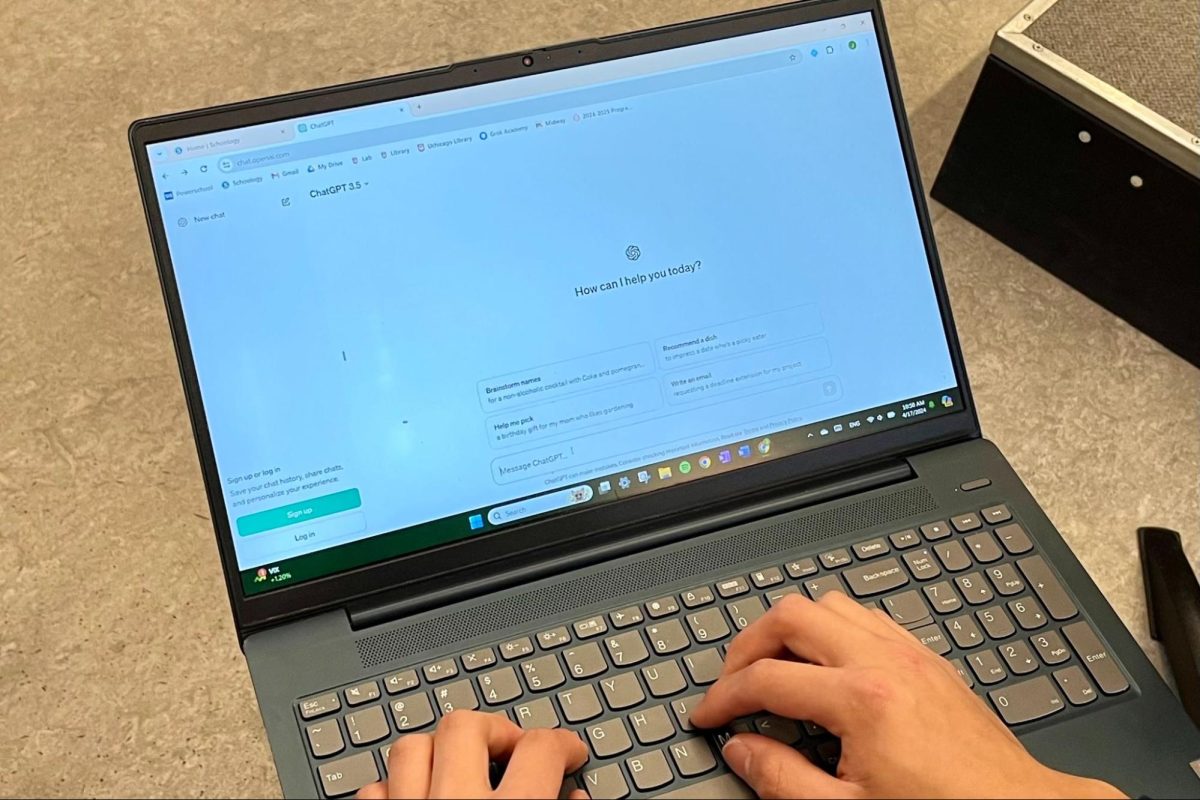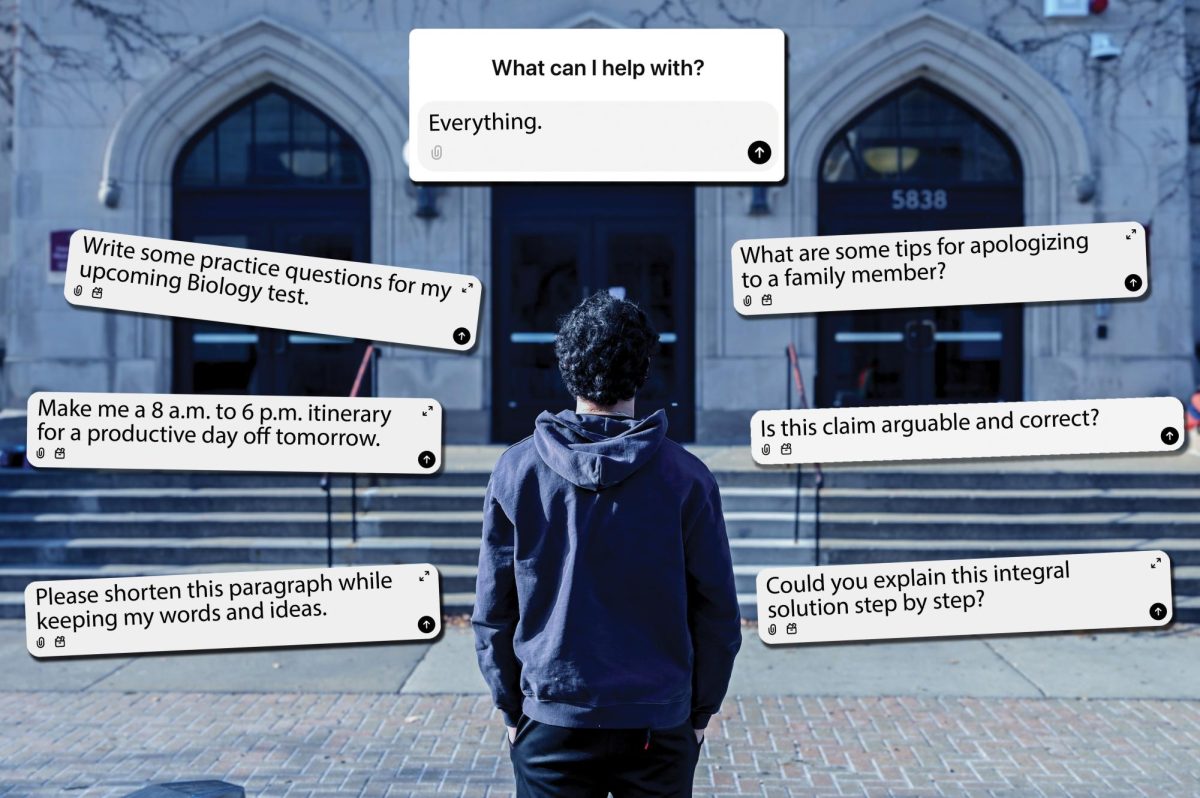The screen is dark white, with a rounded search bar near the bottom of the page.
How can I help you today? ChatGPT asks in bold, centered letters.
Easy to use with its efficient results, generative artificial intelligence has quickly gained exponential popularity, with billions of users worldwide, many of them students.
Thus far, students and teachers at U-High have had little-to-no guidance regarding AI, but in May, a committee of administrators and faculty members will submit recommendations to Director of Schools Tori Jueds regarding the usage of AI by students, along with proposed regulations.
Amy Atkinson, a middle school librarian, is the committee’s co-chair.
“We are looking to make sure that academic needs can be met at various levels across the school, like with whatever AI model is adopted, or how the guidelines are put forward,” Ms. Atkinson said.
Since its introduction into mainstream use, AI has become a prevalent issue in schools. According to ACT, 46% of students have reported using AI at some point in their academics.
Ms. Atkinson is one of the many faculty members who believe that AI regulations are necessary at the Laboratory Schools.
“We see it in sort of more questionable ways, you know. Students may be using AI to write their paper. So it’s just unavoidable at this point,” Ms. Atkinson said.
Other schools and universities already have guidelines put in place regarding AI use. According to the Brookings Institution, a nonpartisan research organization, many public schools have either banned generative AI, integrated it into the curriculum, or placed it under further review.
In regard to the recommendations being made to Ms. Jueds, Ms. Atkinson says that they are still in the process of being developed into a final form.
“They don’t exist yet in any firm capacity,” Ms. Atkinson said, “but we want to ensure if AI is going to be used, it’s used in a way that meets academic needs or serves an academic purpose and keeps in mind the safety of our student body.”
Ms. Atkinson also said that these new guidelines would likely be a part of the student handbook, and would be consistently updated in order to maintain relevance.
According to Fast Company, a business and technology magazine, AI tools can hold incredible potential for improving the way students learn, by creating personalized study plans, and quickly answering questions when teachers are unavailable. However, there exist real risks regarding mental development after an overreliance on AI, such as the decline of critical thinking and problem-solving skills.
Lab’s connection to the University of Chicago may prove useful when looking to develop safeguards against this overreliance, Ms. Atkinson said.
“We’re looking at the way other schools have used AI, the different kinds of models out there, and what are the things that might work for our school if we were to adopt a model,” she said.

